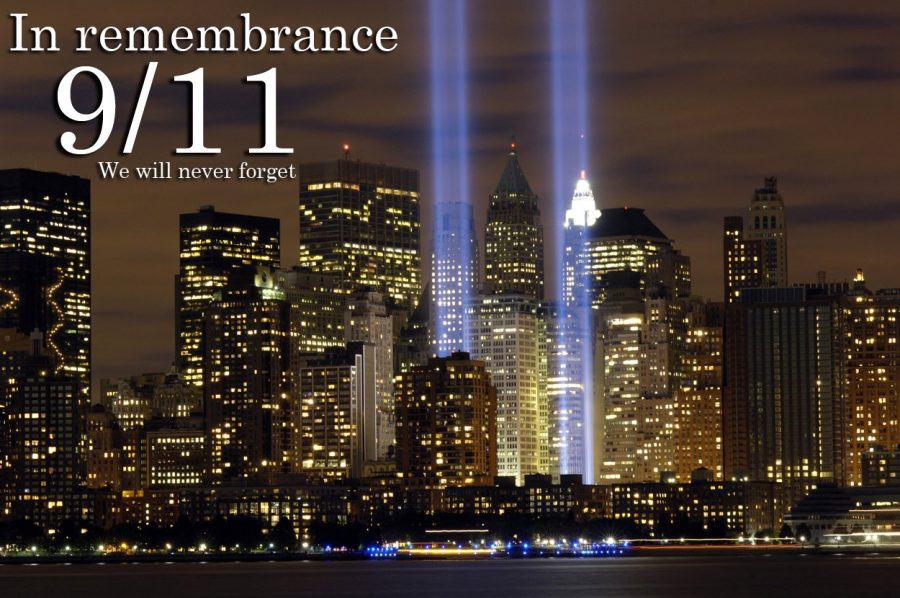Reactions to the 9/11 Assembly
This past Wednesday, the Ramaz Upper-School gathered as a community to commemorate the tragedy of 9/11. Rabbi Willig, the Rosh Yeshiva of Yeshiva University, a member of the Beth Din of America, and a well-respected Rabbi in the Orthodox community, came to address the students about the issue of agunot. In halakha, an agunah is a Jewish woman who is “chained” to her marriage because she doesn’t have a get, a Jewish divorce document. For example, a woman would be an aguna if her husband left on a journey and didn’t return, and was therefore suspected to be dead, but there were no remains nor physical proof of the death.
Rabbi Willig discussed ten cases of agunot resulting from 9/11 and explained the process he used to assess each case, describing what is considered sufficient evidence of death according to Jewish law. This assembly sparked a myriad of different responses from students and faculty alike. Rabbi Stochel said, “Many students had no idea there were halachic problems resulting from 9/11.” He went on to say that the intended goal of the program was to “introduce students to a very serious halachic problem Jewish women face.”
Prior to the assembly on September 11th, on September 10th, Ms. Sonia Agron and Mr. Joe Agron, a husband and wife whose lives were momentously affected by 9/11 came to speak about their experiences. Mr. Joe Agron was a first responder and Ms. Sonia Agron was an EMT. They shared their inspirational yet sad stories and ended by telling the Ramaz students that they have both developed terminal cancers because of the smoke they inhaled at the site of the Twin Towers. For logistical reasons, the couple was only able to come the day before 9/11 and, “we didn’t want to let the day go by without gathering as a community” said Rabbi Stochel to explain why there were two separate assemblies.
Many students were enraged and felt this assembly disrespected the essence of what 9/11 meant to them as Americans. “It was completely inappropriate given that 9/11 affects all Americans, not just Orthodox Jews,” said Rachel Moskowitz ’23. Guy Bacalu ’21 said it “kind of set away the tone of 9/11 to give us a halakha lesson.” Adena Horvitz ’21 said, “Although important to discuss, it took away from the severity of 9/11 as a national tragedy. [The program] would’ve been better on a different day.” An anonymous junior agreed and said, “It might’ve been better suited for an in-class discussion instead of a whole school assembly, as that should’ve focused on the day itself rather than the aftermath only affecting a small group of people.” Rabbi Stochel combatted this argument by expressing that we are simultaneously Jews and Americans, and those two identities are not mutually exclusive.
In contrast, many students and faculty truly enjoyed the assembly and felt a new sense of enlightenment. An anonymous junior related to the speech in a personal way and said, “I thought it was appropriate because I have a family friend whose dad passed away during 9/11, and his mom remarried, and I never realized she had to go through a whole entire process like that to remarry.” Sarine Rubin ’21 said, “I actually really enjoyed the assembly and felt it brought an intriguing new perspective to the tragedy that was 9/11.” Talia Halaas ’21 agreed and said, “it was definitely something I’ve never thought of before in the context of 9/11.” Rabbi Albo, a former student of Rabbi Willig, said of his speech, “It is critical for kids to realize how much care was given by the Rabbis to ensure these Jewish women did not suffer a second tragedy.” Izzie Ottensoser ’22 said, “Rabbi Willig’s speech was enlightening and exposed me to a whole new side of 9/11.”
To conclude the assembly, Mr. Cannon, Head of School, gave a few closing remarks. He reinforced the idea of spreading kindness in light of horrible events such as 9/11. Additionally, he reminded the student body that the two guests [first responders on 9/11] from the previous day have both developed cancer from the fumes they inhaled on that horrible day. He went on to make what many believed was an insensitive comparison, saying, “all of us have the liberty to choose what to put in our bodies, so we should actively choose not to inhale the fumes of e-cigarettes.” Closing a 9/11 assembly with that statement was unsettling to many students. Isaac Silverman ’21 said, “it is incorrect of them to use a national tragedy to push their anti-drug agenda.” An anonymous senior, said, “While vaping is a serious issue and deserves discussion, it felt disrespectful to tie it in with a 9/11 memorial and to equate the results of vaping with the impact 9/11 had on victims. It was a poor comparison and it insulted many.” An anonymous junior agreed, saying, “they took a sad day to talk about drugs they talk about every day.” Although this 9/11 assembly prompted many different reactions from the student body, it was definitely unique and the students did learn something new.



